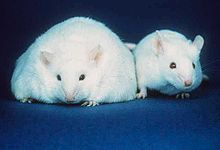With the cold months ending and summer coming up very soon, this means cutting down for many people. People use countless methods to help them achieve that goal such as protein powder, creatine, and diet pills. Despite all this effort, a lot of people are making this one mistake that could make it much harder for them to achieve their weight loss goal. These studies below show and strengthen correlation between insufficient sleep and factors that lead to weight gain.
Lack of sleep and 2-AG
A new study published in the journal, Sleep, was carried out by a team of scientists who focused on a type of endocannabinoid. Endocannabinoid is a class of molecule that controls physiological processes in our body. They studied a molecule called 2-AG which is associated with our ability to control our appetite. When this molecule is circulating throughout our body, it decreases our ability to control instant cravings and increases the pleasure we get from eating food we would normally think of as unhealthy and feel guilty from indulging in.
They gathered 14 healthy young adults, both male and female. Half of them were allowed to get a full nights sleep which consisted of 8.5 hours compared to the other half who were restricted to 4.5 hours of sleep. What they found was that the level of 2-AG in their body was higher consistently through out the day and remained high in the evening for those who had restricted amount of sleep.

Increased level of 2-AG would make you crave junk food you normally would stay away from. Image from deckofdreams
Lack of sleep and Leptin & Gherlin
Another study that supports this claim of correlation between insufficient sleep and weight gain was also done by Prinz and Taheri. Their studies looked at the level of leptin and ghrelin in participants with restricted amount of sleep. Leptin in our body serves to suppress appetite and stimulate burning energy in our body. Ghrelin on the other hand sends signal to make us feel hungry and tells the body to store more fat. By monitoring people participants who got less than 7-8 hours of sleep, they saw decreased level of leptin and increased level of ghrelin which ultimately lead to weight gain.

Example of how reduced levels of leptin produced in mouse leads to obesity (left) compared to normal mouse (right). Image from wikipedia
Just get more sleep!
In summary, when you get less than recommended amount of sleep of 7-8 hours every night, there is increased amount of 2-AG and ghrelin and decreased amount of leptin flowing through our body. This all serves to makes us less capable of controlling our appetite, and promotes fat build up. Thinking in reverse, this means that getting sufficient amount of sleep every night would help us control our appetite and have our body burning fat like usual! This should be convincing enough for anyone wanting to lose weight for the summer to spend more time in bed at night getting some shut eye.

video – How Lack of Sleep can Cause Weight Gain. by Howcast
Alana Lee

3 responses to “Sleep loss and Obesity ?”